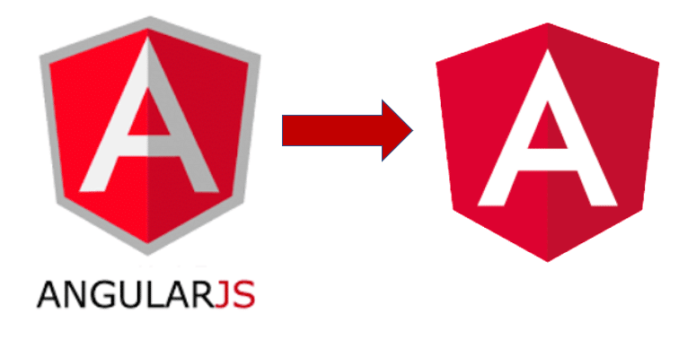Welcome again to the world of development! Many programmers prefer not to create applications from scratch, but to use a ready-made solution known as a framework for this. This allows you to get rid of the need to write large amounts of standard code and thereby free the developer from routine work. Such a framework, in addition to automating work and diluting from performing monotonous uninteresting operations, helps to structure the entire code. And this, in turn, will help other developers deal with the written code in case of need to make changes. If you are just a beginner in learning frameworks or are choosing which technology to master, then this article which is called ‘Why You Need To Learn Angular over AngularJS’ is for you. Perhaps some of you are already developing in AngularJS and are thinking about switching to Angular. Looking ahead, I want to say that in the article you will be able to read about the main advantages of Angular over AngularJS and why it is better to learn now and work on it accordingly. Let’s start from the beginning!
Eight years ago, Google introduced the AngularJS client framework to the world community, which allows programmers to create web applications, optimize and structure code, and work on design. This technology has become popular due to its convenience, practicality, and good technical support. Despite the popularity of the JS version, the developers did not stop and continued to develop a more convenient framework with a different concept of work. The new version of the technology was called Angular 2, but later the next generation of the AngularJS framework was called simply Angular without prefixes. The new edition provides the ability to create Android and iOS applications of any complexity for mobile devices, native desktop and web versions. The popularity of the framework is due to several important aspects at once, the main one of which is convenience for the developer. Angular applications are relatively fast to write, the code has a clear structure, and even third-party programmers can understand it relatively easily. This framework is a practical foundation with a large set of useful design tools and patterns. Angular is suitable for writing applications for different platforms, has a huge training base and a large community, you can connect third-party tools and modules to it, expanding the already impressive functionality. It is built on TypeScript, but a developer does not have to learn all the intricacies of a new language, and many functions such as static typing, decorators and many others are already available to him. Separately, it should be noted that in this framework, the logic of the application being developed and the views are not connected, which greatly simplifies the markup.
What are the differences in the development process for Angular and AngularJS?
Imagine that you have received a new interesting project from the customer and start its implementation. You start with a clean slate and in fact you should have complete freedom of action. But with the JS version of Angular, everything is not so simple. It is fundamental that everything designed rests on the realities of the system, its modules and services of a entirely defined type. You can’t just take it and carefully make a class or component that will do something important. The absence of such limitations on the part of the system, in my opinion, may be a solid advantage of Angular 2. You can use any convenient modular system, name and include arbitrary code as you like. If you have already developed projects on AngularJS, you know that the framework requires you to perform some actions at the beginning. This includes creating the file structure of the future application, debugging templates, styles and preprocessor, the testing process and more. With the second version of the framework, we get a command line tool with which you can generate applications, modules, components, directives, services, filters (pipe is their new name), run tests, check code, etc. And to do the above, you need to run one command: ng new app-name. After the execution of this command, all the necessary infrastructure will be created in the best execution at the moment. You can start working right away. Nothing extra. The command can take additional arguments. For example, if you plan to use the CSS preprocessor Stylus. What about TypeScript? The generated application code will use TypeScript, which intimidates many, most likely due to misconceptions about it. In fact, this is the same JavaScript (ECMAScript 6), but with some nice and useful features: interfaces, typing, modifiers, decorators. All this allows you to write more stable and beautiful code, eliminates the need to use bad JSDoc everywhere. Having started using TypeScript, you want to write only in it, and you no longer understand how it was possible to be so sinful – not to use it before? I think many of you know that the key feature of AngularJS is two-way binding. How is it implemented in Angular 2? With such an entry in the template <app-player [(position)] = “playerPosition”> </app-player>, the value of the playerPosition property of the current component will be passed and will change when the position property changes inside the player component. This is exactly the two-way binding. Angular 2 also introduces a new syntax that allows property values to be passed to child components (one-way binding). An important point of this article is a barrier to entry in Angular. Despite the power of Angular 2, it really is. And this is due to the following reasons: JavaScript capabilities are used to the maximum level, many things are implemented in a more logical and expected way, the quality of hints and auto-completion is at the highest level (thanks to TypeScript), there is a command line to generate everything you need, and, equally important, it has good documentation.
If you learned about AngularJS not so long ago and almost immediately read an article in which Angular is exalted over all frameworks, then you may be confused and do not know at all what to learn next and in what sequence. In fact, this is the perfect time to start learning Angular 2 too. Launching a new framework version before you have spent a lot of time on another is, in my opinion, a good choice. I advise you to consider Angular 2 as a completely new framework and start from scratch. Also, the knowledge you already have about AngularJS will be helpful as there are concepts that haven’t changed that much. There are many tutorials available online for free that you can use. There is no “right” approach to learning a framework. You can learn the framework in parallel with learning how “bare” sites work. These are completely non-contradictory things and there is no need to do it in a certain order. The framework is based on the same principles, it just allows you not to rewrite banal and identical things for each site. In general, I recommend reading good documentation and books. Most people are now studying the development process using the copy-paste method. They create a basic project, and then add to it the functionality of copy-paste googled examples, in case of errors, ask primitive questions, the answers to which are on various forums and communities. At least I recommend reading the official Angular documentation from beginning to the end. And more than once, because the first time a lot will be incomprehensible and forgotten. Also, the World Wide Web offers many videos, online conferences and webinars, interesting paid and free courses. All this will be useful to study Angular.
Conclusion
Should you learn Angular over AngularJS? Definitely yes! I want to remind you why:
- It is a competently and high-designed, high-performance framework;
- With a lower barrier of entry compared to its first version;
- Great documentation with lots of practical examples.
We conclude that Angular 2 is a very professional and high-quality framework. Working with it, you feel that it was written by people who have extensive practical development experience and you realize that you no longer want to write on the first version of it. Thanks for reading this article ‘‘Why You Need To Learn Angular over AngularJS’! Wish you an interesting journey in the development world of Angular.

















